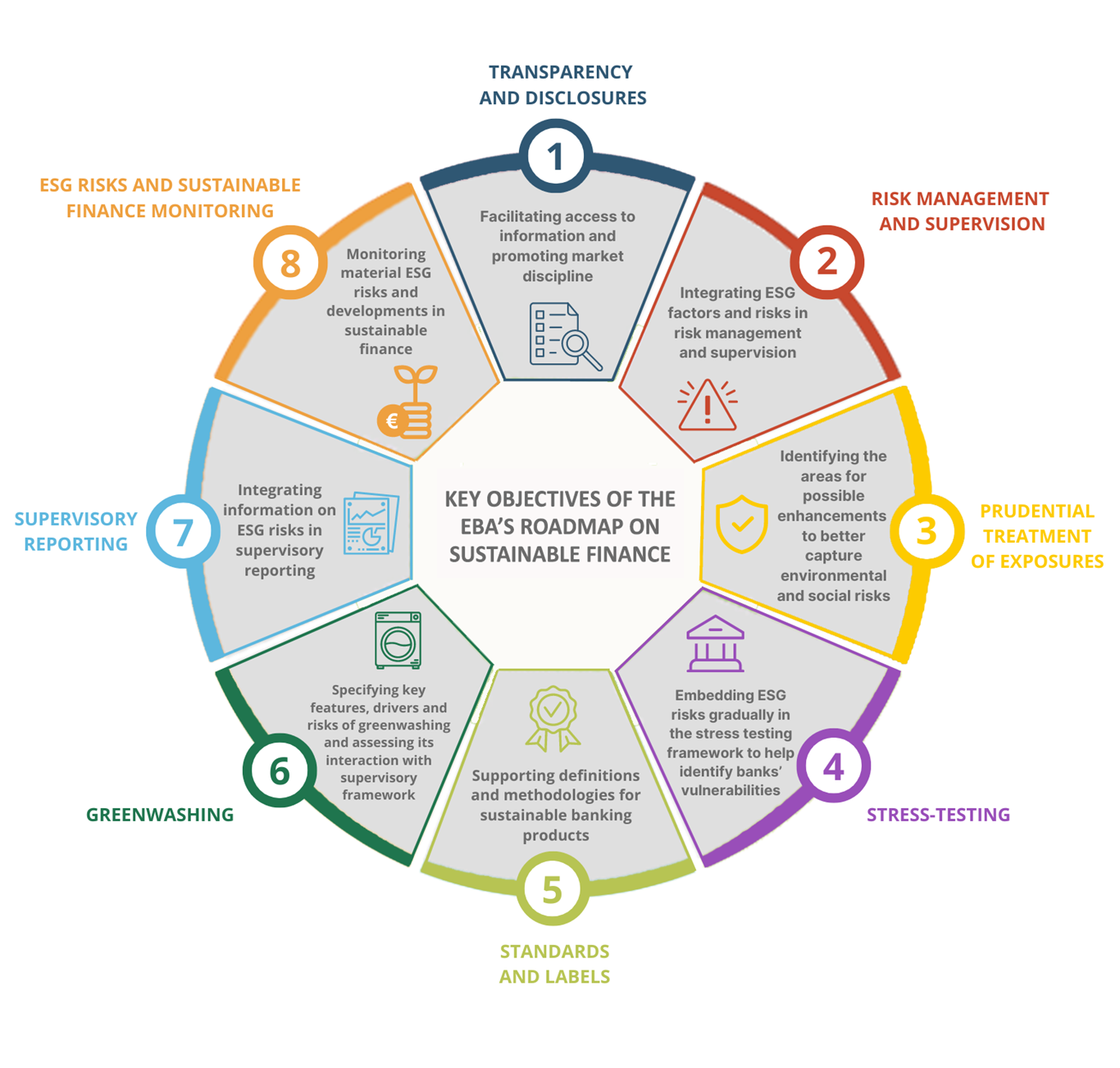The EBA's work on ESG risks will primarily cover the three pillars of the banking framework, as well as other related areas and the monitoring and assessment of risks. The EBA will foster transparency and market discipline on ESG issues through enhanced disclosures, and ensure robust management of ESG risks by institutions through harmonised rules at the EU level. The EBA has also started reflecting on the merits of introducing changes to the prudential treatment of exposures under Pillar 1.
When executing its roadmap and delivering its mandates on ESG, the EBA will pay particular attention to ensuring continued resilience of the EU banking sector, applying the principle of proportionality, and supporting the implementation of the EU and international agenda on sustainable finance. The EBA will also cooperate with other EU and international bodies such as the European Commission, the Basel Committee on Banking Supervision, and the Network for Greening the Financial System.
The EBA will collaborate with various European and international bodies, such as the European Commission, the Basel Committee on Banking Supervision (BCBS), and the Network for Greening the Financial System (NGFS), to contribute to the ESG work in the area of sustainable finance and environmental, social, and governance (ESG) risks. The EBA will also closely cooperate with the European Securities and Markets Authority (ESMA) and the European Occupational Pensions and Insurance Authority (EIOPA) to ensure regulatory consistency across the EU financial sector. It is important to maintain close cooperation between EU and international institutions to ensure synergy and consistency in the development and implementation of the ESG regulatory framework.
A great achievement for house-keeping that should also be noted is that the EBA has obtained the Eco-Management and Audit Scheme (EMAS) certification, under which its internal efforts to consider the environmental impact of its activities and functioning have been acknowledged. The EBA will continue to monitor its progress going forward.
The report can be found here.

Figure 1 Source: EBA Roadmap on Sustainable Finance
Our team at Grant Thornton Cyprus has been researching and advising clients on the impacts and expectations of regulators with regards to sustainable finance in the last few years. A showcase of relevant articles and reports we published throughout the year is presented below.
|
Title |
Website Link |
|
Regulatory guidance on climate and environmental risks for the financial services sector |
|
|
Climate risk stress test: SSM stress test 2022 |
|
|
Climate Risk Quantification Approach |
Article |
|
Climate risk quantification: Focus on ESG data |
|
|
ECB publishes 2022 climate stress test results |
|
|
NGFS series: Climate scenarios – A range of plausible outcomes |
|
|
NGFS Series: Bridging Data Gaps – The Future of Climate Data |
|
|
NGFS Scenarios for Central Banks and Supervisors – Phase III Scenarios |

